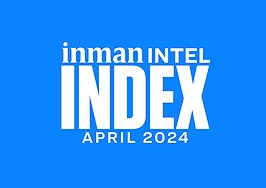Andrew Monaghan was in the middle of showing a Phoenix-area home last fall when he got a phone call.
“The listing agent called me to tell me that the sellers were watching and listening on a camera,” Monaghan recalled, “and to tell the kids to stop playing with a pool table.”

Andrew Monaghan
Monaghan, a Keller Williams agent, told Inman the call “freaked my clients out.” No one present at the time had considered that someone might actually be watching them, live and in real time, but in the months since the moment has helped change the way he acts in homes that are for sale. Now, as Monaghan does walk throughs he visually scans for surveillance technology that could end up recording his clients. And, he added, he waits to discuss properties until he has stepped outside.
“At this moment in time do I talk strategy in the house?” he said. “No.”
Monaghan’s experience highlights a growing issue in real estate. As smart-home technology becomes more common, real estate agents and their clients are increasingly thrown into 1984-esque settings where someone, somewhere, could secretly be observing them. And while most people who spoke to Inman for this story believe such technology is not normally used for nefarious purposes, it does raise a host of questions about ethics, legality, and privacy when it comes to listings that feature surveillance devices.
Lindsey Levitan, an agent with Pacific Sotheby’s International Realty in San Diego, recently came face to face with those questions herself — though she didn’t immediately have any answers. Levitan told Inman that she is currently working with a client who has security cameras inside his own home. Levitan had seen the cameras, but didn’t think they were actively in use until she got a call one day while some prospective buyers were in the house.

Lindsey Levitan
“He’s sitting in the car, and he said, ‘they just said this,'” Levitan said, explaining that her client had been listening to conversations from prospective buyers.
Levitan said she was uneasy about the call, and wasn’t sure what to do. In the end, she called her brokerage for guidance and updated the listing in the local MLS to say that visitors to the home may be recorded while inside.
States generally have laws governing recordings but it’s a patchwork of different regulations, and few real estate agents actually know what they are. For example Arizona, where Monaghan practices, is a “one-party consent” state, meaning that interactions can be taped as long as one of the people involved knows they’re being recorded.
On the other hand California, where Levitan practices, is a “two-party consent” state. That means both parties involved in a recorded interaction have to know they’re being taped.
The legal differences between the two neighboring states highlight the varying policies governing recording practices across the U.S.
In a statement Thursday, Finley Maxson, senior counsel at the National Association of Realtors, told Inman that “video recording laws in general have to test whether the individuals have a reasonable expectation of privacy when they are being recorded, but some states do require the posting of notices.”
Maxson further noted that some multiple listing services (MLS) have tried to bring order to the situation by rolling out disclosure rules about recordings.
Many real estate agents also believe they have an ethical obligation to disclose the existence of recording technology, regardless of what the law says. Monaghan noted that agents have a fiduciary duty to their clients, and that making everyone involved in a sale aware of cameras is part of that.
“At the end of it, I do think there should be some form of disclosure,” he said. “I think there’s an onus on the listing agent to disclose if there are cameras on the property.”
Monaghan has firsthand experience with what can happen when camera’s aren’t disclosed. He said that the clients who were being watched, and about whom he received the mid-listing phone call, actually wanted to buy the house where they were being observed. Despite being creeped out by the phone call, the property checked a lot of boxes for them and they eventually made an offer.
But the sellers went with another offer for the same price. Monaghan doesn’t know why his clients lost the home, but ever since has wondered if it had to do with the seller’s eavesdropping.
“I don’t know if they had a bias against my client or if they had heard something,” he added.
The idea that sellers could be listening in on buyers is a recurring concern among agents. Ian Williams, an eXp Realty agent in Austin, Texas, told Inman that buyers now have to be extremely careful that they don’t reveal their strategies, preferences or opinions inside a home, lest the sellers be listening and gain an upper hand in negotiations.
“The negotiation is important,” he pointed out. “But if we’re walking in and they’re being ecstatic it becomes a tough situation.”
In Williams’ case, he now has a “huddle” with his clients outside of homes, but avoids talking about properties while inside touring them.
But there is not necessarily a consensus about what should be disclosed and how. On Wednesday Williams asked about cameras in a popular real estate Facebook group. The question quickly prompted hundreds of responses. Many of the commenters agreed with Monaghan and said that surveillance technology should be disclosed, but others argued that the decision is up to the sellers and wondered if people should have a reasonable expectation of privacy while inside someone else’s home.
Levitan — who did update her listing when she learned a client was using his cameras — also noted that the issue is very new, meaning both she and other agents haven’t had a long time to consider the legal and ethical ramifications. But, she added, she understands why sellers might believe they have a right to watch what is going on in their own homes.
“If people are going into his home, he has every right to know what’s going on,” she said of her client with the cameras. “People have every right to protect their home however they see fit.”
These issues are likely to get stickier as smart-home technology becomes more complex. Williams noted that surveillance tools aren’t limited to cameras in the corner of a room, and cited the example of an Xbox which has a camera and can be used as a baby monitor.
“Nobody even knows that unless they play games,” he said.
Williams also identified baby monitor teddy bears and pen microphones as common objects that buyers might overlook, but which could potentially be used to listen in on visitors to houses.
“They’ve even got Kleenex boxes that have cameras built in,” Williams added.
And of course there’s an array of smart-home technology that goes beyond dedicated indoor security cameras. Amazon, in particular, has been aggressive about rolling out this kind of technology and today manufactures the Ring smart door bell and a line of devices that use the Alexa digital assistant. Last year, Amazon partnered with home builder Lennar to place the this technology in new houses.

An Amazon Echo Dot | Photo by Amber Taufen
Such devices have raised privacy concerns in the past, and Williams wondered what might happen if visitor to a home interacted with this kind of technology without an owner’s consent.
“Or what if somebody’s outside the house and yelling, ‘Alexa unlock the door,'” he said.
Williams, who is a fan of smart-home technology and has installed it throughout his own house, said there are currently safeguards in place to prevent that exact scenario. But, he added, it’s easy to imagine something similar becoming possible as new products roll out in the near future.
In a statement, an Amazon spokesperson told Inman that “we take privacy seriously and have built multiple layers of privacy protections into Echo devices including a mute button, as well as the ability to review and delete voice recordings in the Alexa app or on the website.”
The company also pointed Inman to an Alexa fact sheet that further details how the company thinks about privacy. The fact sheet explains how to mute Amazon’s Echo devices, which run Alexa, and states that the company is not recording all conversations within earshot — a likely concern of agents and buyers entering homes where the devices are installed.
Still smart home devices, particularly those that gather images and audio, remain a serious concern for agents who have to enter numerous homes belonging to strangers. Agents who spoke with Inman for this story said that they have also seen the devices making their way into new markets as they become cheaper. And the consensus among agents appears to be that the questions around this technology are becoming more pervasive.
“It is definitely becoming a more widespread thing,” Williams said.













